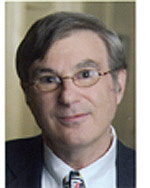Jesus of Nazareth, Holy Week: From the Entrance into Jerusalem to the Resurrection by Joseph Ratzinger, Ignatius, San Francisco; ISBN 978-1-58617-500-9 ©2011, $24.95, p. 293 plus appendices
By Fred Reiss, Ed.D.

WINCHESTER, California–Nearly two thousand books on the Amazon website are linked to the words Jesus and Passion. With so many books one might wonder why the need for another one. Jesus of Nazareth, Holy Week: From the Entrance into Jerusalem to the Resurrection is special in that its author, Joseph Ratzinger is known to the world as Pope Benedict XVI. As such, he is the spokesman for official Catholic doctrines.
Ratzinger follows a linear sketch of Jesus’ actions from his entrance into Jerusalem near the eve of Passover through the symbolic washing of the feet and the Last Supper. The book concludes with the Crucifixion and Resurrection. Along this historical timeline, Ratzinger reconciles the events of Jesus’ last days on earth presented in the Synoptic Gospels and the Gospel of John. He also presents the retrospective interpretations by the early Christians of those verses of the Jewish Bible for Jesus being the Messiah and the Son of God.
For example, the prophet Zechariah (9:9) says that the king will be coming to you in righteousness and in triumph; yet riding humbly on a donkey. As Jesus rides into Jerusalem on a donkey, fulfilling this prophecy, the disciples lay their garments on the donkey, as similarly happened when Elisha anointed Jehu king of Israel (2 Kings 9:13). While in Jerusalem, Jesus is recorded as predicting the destruction of the Second Temple (Matthew 23:38) using the same words spoken by Jeremiah (12:7) about the destruction of the First Temple. This, of course, explains why the Christians fled Israel and failed to fight in the war against Rome, 66-70 CE. In addition, to explain why God has abandoned the teachings of the Old Testament, the leaders of the nascent church refer to Jeremiah (31:29-31), who quotes God as saying that He will make a new covenant with the house of Israel, and with the house of Judah.
The Pope also belatedly acknowledges the errors of the Church. “The question of Israel’s mission has always been present in the background. We realize today with horror how many misunderstandings with grave consequences have weighed down our history.” He goes on to say that it is not the obligation of the Church to convert the Jews. Rather their conversion depends on “God’s time.” Ratzinger writes, “Granted, with regard to the Jews, time excuses you; for them a determining point in time has been fixed, which cannot be anticipated.” Most important, when discussing Jesus’ trial and subsequent crucifixion, Ratzinger reiterates the conclusion of Vatican II’s Nostra Aetate (1965) in which the Catholic Church abandons its age-old teaching that the Jews bear collective responsibility for Jesus’ persecution. Ratzinger writes,
“Who exactly were Jesus’ accusers? Who insisted that he be condemned to death? We must take note of the different answers that the Gospels give to this question. According to John it was simply “the Jews”. But John’s use of this expression does not in any way indicate—as the modern reader might suppose—the people of Israel in general, even less is it “racist” in character. After all, John himself was ethnically a Jew, as were Jesus and his followers. The entire early Christian community was made up of Jews. In John’s Gospel this word has a precise and clearly defined meaning: he is referring to the Temple aristocracy.”
Ratzinger eloquently describes and interprets the salient points of Jesus’ last days of life on earth. His understanding of Catholic traditions is deep, and his fervor is contagious from which Catholic readers will glean renewed faith and conviction. For non-Catholics, Jesus of Nazareth, Holy Week: From the Entrance into Jerusalem to the Resurrection expresses Catholicism’s Old Testament’s basis for its existence, and lays a common foundation for interreligious dialogue and discussion.
*
Dr. Fred Reiss is a retired public and Hebrew school teacher and administrator. He is the author of The Standard Guide to the Jewish and Civil Calendars; Ancient Secrets of Creation: Sepher Yetzira, the Book that Started Kabbalah, Revealed; and Reclaiming the Messiah. The author can be reached at fred.reiss@sdjewishworld.com